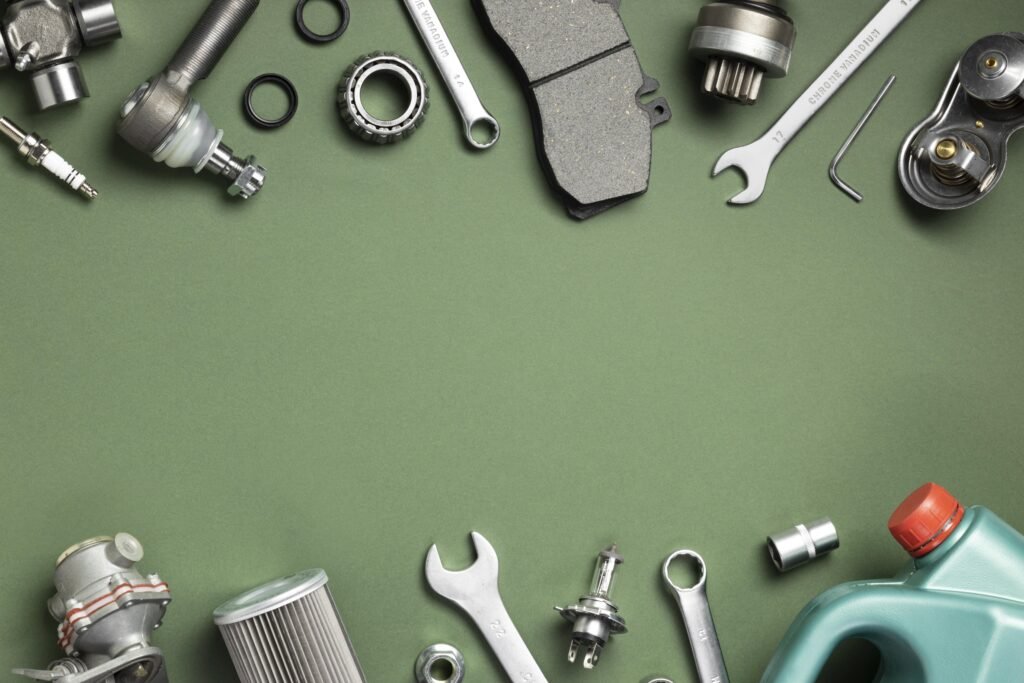
In the modern world, automobiles have become a necessity rather than a luxury. They play an important role in the lives of millions of people, making transportation convenient and easy. To keep these machines running smoothly, it is important to have proper auto works carried out regularly. Auto works involve a wide range of tasks that are essential to maintain the performance and longevity of your vehicle. In this blog, we’ll take a closer look at what auto works entail and why they are so important.
What are Auto Works?
Auto works refer to the maintenance and repair services that are performed on a vehicle to ensure that it runs safely and efficiently. These services may include regular inspections, tune-ups, oil changes, tire rotations, brake repairs, engine repairs, and more. Auto works can be performed by a professional mechanic or done by the vehicle owner if they have the necessary skills and knowledge.
Why are Auto Works Important?
Auto works are important for several reasons. Firstly, they help to keep your vehicle running smoothly and efficiently, which can help to prevent breakdowns and reduce the risk of accidents. Secondly, regular auto works can extend the life of your vehicle, saving you money in the long run. By maintaining your car properly, you can avoid costly repairs and replacements that could have been prevented with timely maintenance. Finally, auto works can help to maintain the value of your vehicle. A well-maintained car will hold its value better than one that has been neglected.
Types of Auto Works
There are several different types of auto works that may be required for your vehicle. Some of the most common types of auto works include:
Regular Inspections – Regular inspections are essential to ensure that your vehicle is safe to drive.
Auto works refer to the various systems and components that work together to power and operate vehicles. This includes everything from the engine, transmission, and drivetrain to the brakes, steering, and suspension. Understanding how these components work and how to maintain them is essential for keeping your vehicle running smoothly and safely.
Engine and Transmission
The engine is the heart of the vehicle, responsible for generating the power that propels it forward. It is typically made up of a complex network of components, including the cylinder block, pistons, crankshaft, and camshaft. Regular maintenance is essential for keeping the engine running smoothly, including oil changes, filter replacements, and periodic inspections for signs of wear and tear.
The transmission is responsible for transmitting power from the engine to the wheels. There are two main types of transmissions: manual and automatic. Manual transmissions require the driver to shift gears manually using a clutch pedal and gear stick, while automatic transmissions shift gears automatically. Both types of transmissions require regular maintenance to keep them functioning properly, including fluid changes and inspections for signs of wear and tear.
Drivetrain
The drivetrain is the system that connects the engine and transmission to the wheels. It includes the driveshaft, differential, and axles. Regular maintenance is essential for keeping the drivetrain functioning properly, including fluid changes and inspections for signs of wear and tear.
Brakes
The brakes are responsible for stopping the vehicle when needed. They include a complex network of components, including the brake pads, rotors, calipers, and brake lines. Regular maintenance is essential for keeping the brakes functioning properly, including pad and rotor replacements and periodic inspections for signs of wear and tear.
Steering and Suspension
The steering and suspension are responsible for keeping the vehicle stable and on the road. The steering system includes components such as the steering rack, power steering pump, and tie rods. The suspension includes components such as the shocks, struts, and springs. Regular maintenance is essential for keeping the steering and suspension functioning properly, including periodic inspections for signs of wear and tear and replacement of worn components.
In conclusion, understanding how the various systems and components of your vehicle work together is essential for keeping it running smoothly and safely. Regular maintenance is essential for keeping these systems functioning properly and for identifying potential problems before they become serious issues. By taking care of your vehicle, you can ensure that it will provide reliable transportation for many years to come.